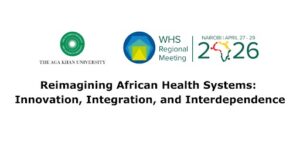By Malachie Tuyishime.
With the Vision 2050 agenda striving to further develop the health and wellbeing of the Rwandan people, the current national Health Sector Strategic Plan IV (HSSP) 2018 –2024 commits the health sector to continue to move toward Universal Health Coverage (UHC), seeking to equitably and sustainably ensure access to preventative, curative, and supportive care for all.
Cancer is a generic term for a large group of diseases that can affect any part of the body. Other terms used are malignant tumors and neoplasms.
One defining feature of cancer is the rapid creation of abnormal cells that grow beyond their usual boundaries, and which can then invade adjoining parts of the body and spread to other organs; the latter process is referred to as metastasis. Widespread metastases are the primary cause of death from cancer.
WHO, through its cancer research agency, the International Agency for Research on Cancer (IARC), maintains a classification of cancer-causing.
Tobacco use, alcohol consumption, unhealthy diet, physical inactivity and air pollution are risk factors for cancer and other non-communicable diseases.
Cancer risk can be reduced by not using tobacco, maintaining a healthy body weight; eating a healthy diet, including fruit and vegetables, doing physical activity on a regular basis, avoiding or reducing consumption of alcohol, getting vaccinated against HPV and hepatitis B if you belong to a group for which vaccination is recommended; reducing exposure to outdoor air pollution and indoor air pollution, including radon (a radioactive gas produced from the natural decay of uranium, which can accumulate in buildings — homes, schools and workplaces).
To reduce cancer-related morbidity and mortality in Rwanda, the country has focus on the following objectives.
Reduce the incidence of preventable cancers, increase the rate of early detection and screening of cancers, and improve access for cancer patients to quality cancer diagnosis and treatment services. Provide access to quality pain management and palliative care services for cancer patients. Strengthen cancer information system and research. Strengthen Coordination, Partnership and Financing for Cancer Control.
According to the Globocan report 2018, supported by the WHO, approximately 10,704 new cancer cases and 7,662 cancer related deaths were estimated in Rwanda
On 4 February 2020, His Excellency President Paul Kagame inaugurated the official opening of the Rwanda Cancer Centre (RCC) at Rwanda Military Hospital (RMH) in Kanombe. Constructed by UNTEC, a French company, and funded by the Government of Rwanda, the Global Fund, and the CDC: Centers for Disease Control and Prevention, the center became operational in March 2019.
The goal was to reduce cancer-related morbidity and mortality in Rwanda. The most types of cancer in Rwanda are Breast cancer, cervical cancer, Prostate cancer, Head and neck cancers, blood cancer, gastrointestinal cancers, including liver cancer, and lung cancer.
Cancer is recognized as a global problem. Recent reports indicate that 1 in 5 men and 1 in 6 women worldwide will develop cancer in their lifetime. In 2018, 18.1 million new cases were reported worldwide, with many of them occurring in low- and middle-income countries. Approximately 1 million new cases are diagnosed annually in Africa.






One thought on “Objectives to reduce cancer-related morbidity and mortality in Rwanda”
Good article! Keep posting guys